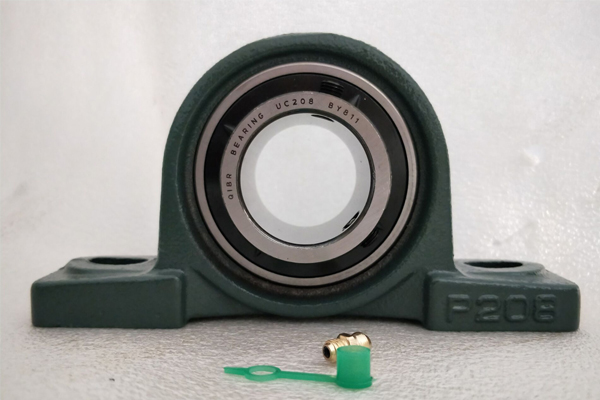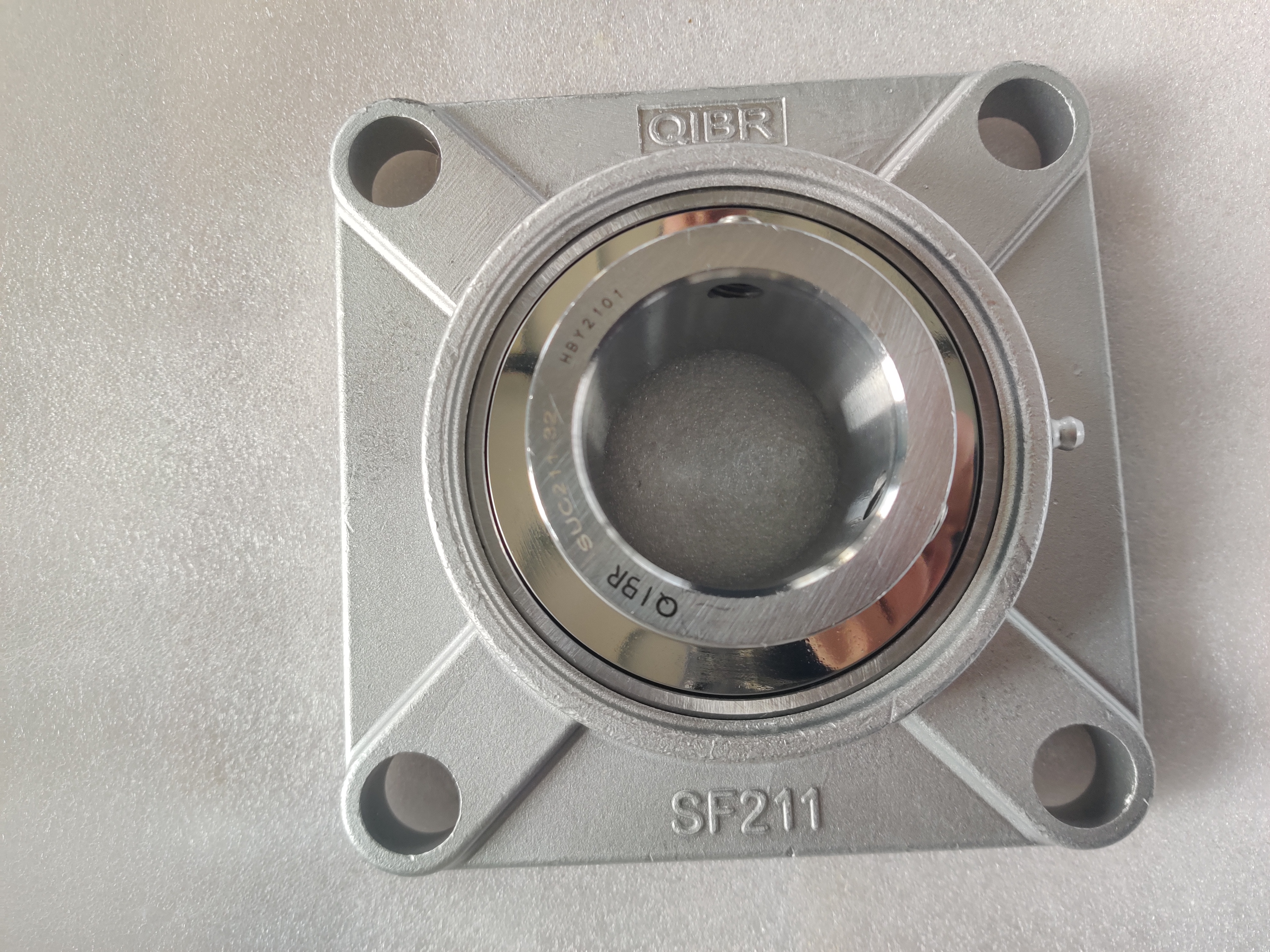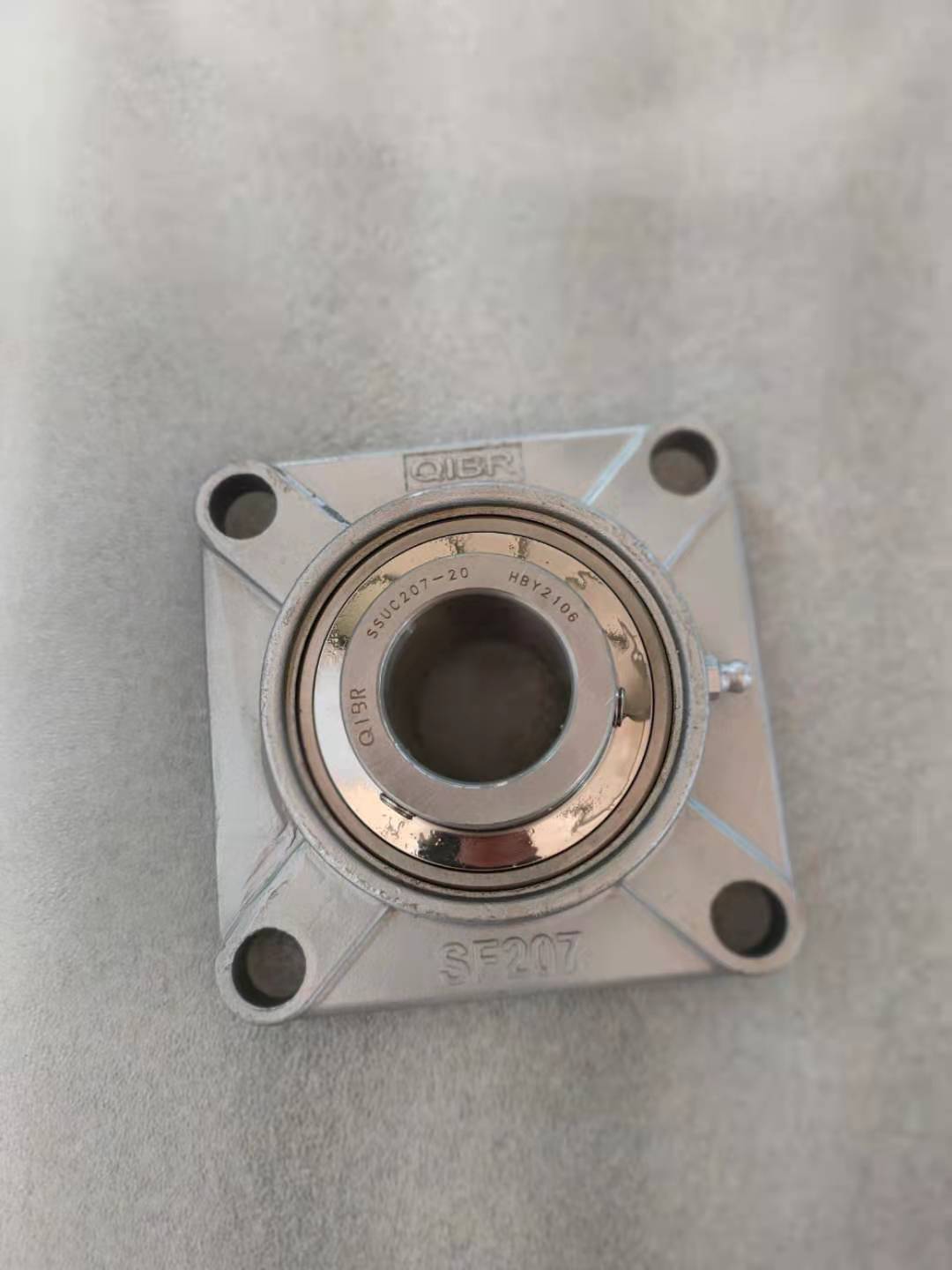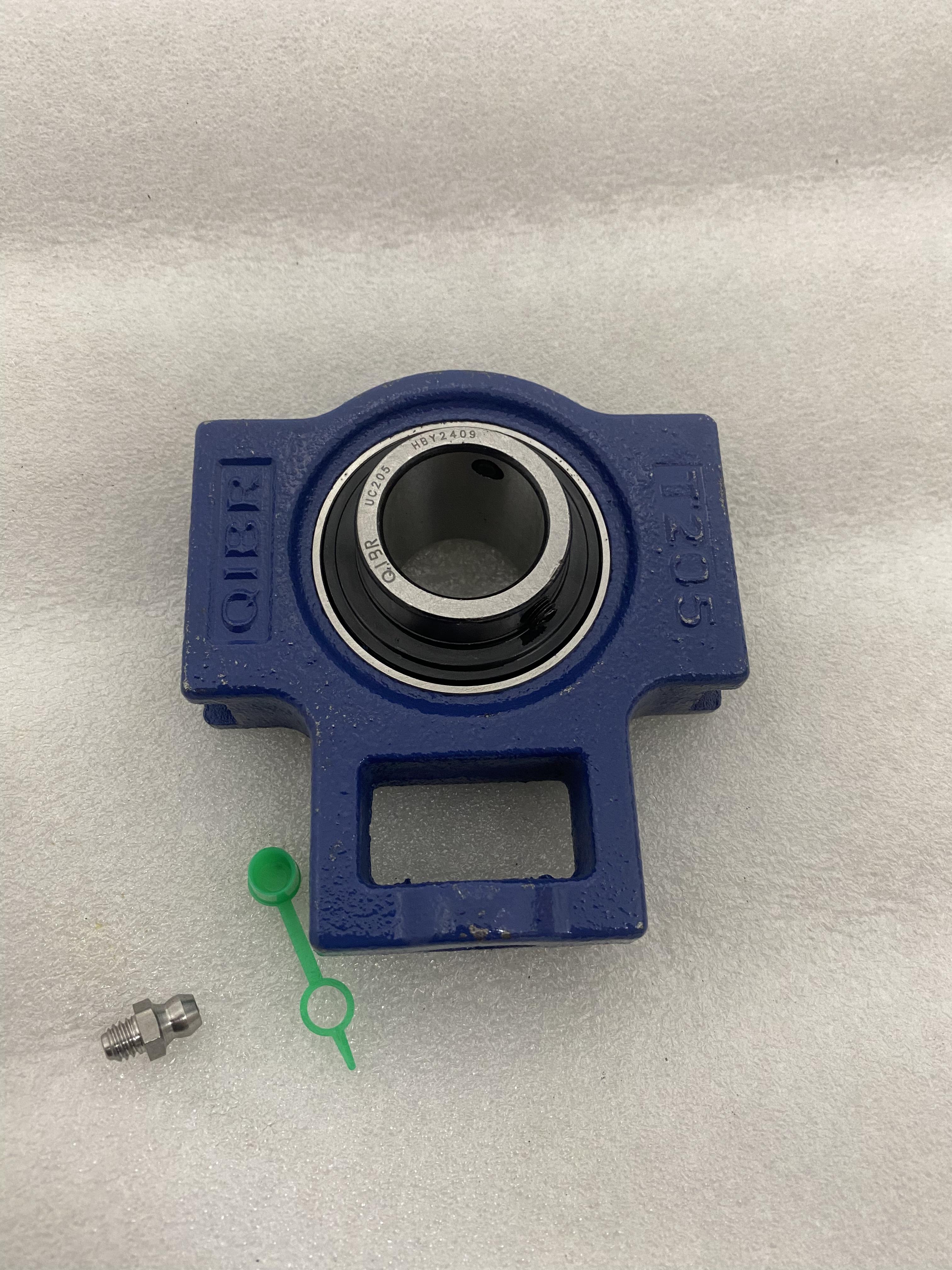Newsroom
What is the function of a bearing unit?
2025-04-24A bearing unit is a component used to support a bearing. It is typically used in conjunction with the bearing to fix its position, bear loads, and ensure proper operation. The primary function of a bearing housing is to support the rotating shaft, bear axial and radial loads, and provide internal lubrication to the bearing to reduce friction and wear, thereby ensuring long-term stable operation of the bearing.

The bearing unit is an important component that connects the bearing to the machine base, and it mainly serves the following functions:
1.Support function
The bearing unit supports the bearing, enabling it to carry axial and radial loads of the machinery as well as support the rotating shaft.
2.Positioning function
The bearing unit secures the bearing in the correct position on the machine, ensuring the proper axial distance between the inner and outer rings of the bearing and the end cover.
3.Sealing function
The bearing unit can include sealing structures to keep the lubricant clean and prevent leakage.
4.Noise reduction
Flanged and grooved parts of the housing can reduce the transmission of vibrations, thereby lowering machine noise.

Common materials for bearing units include cast steel, cast iron, cast aluminum, bronze alloys, forged steel, stainless steel, plastics, and composite materials. The specific material chosen depends on the application and requirements. For example:
- Cast iron units are suitable for low-speed, light-load applications where high precision is not required.
- Cast steel units offer good strength and wear resistance, making them ideal for heavy-load and high-speed applications.
- Forged steel units provide superior mechanical properties and corrosion resistance, suitable for high-temperature and high-load conditions.
- Stainless steel units are ideal for corrosive environments and industries such as food processing.

Additionally, plastics and composite materials can also be used for bearing units, such as polyamide and polyurethane. These materials are lightweight, flexible, impact-resistant, self-lubricating, and offer excellent insulation. However, they may lack strength and durability, making them suitable only for low-load and low-speed bearing applications.

For more information, feel free to contact QIBR


